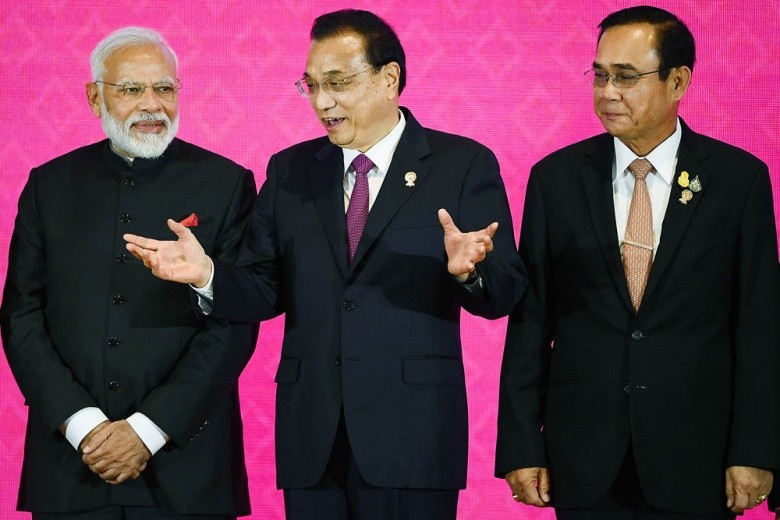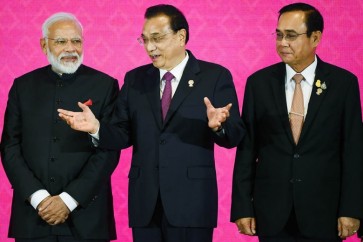Popular Reads
Top Results
Can't find what you're looking for?
View all search resultsPopular Reads
Top Results
Can't find what you're looking for?
View all search resultsInsight: RCEP is about ASEAN’s initiative, not China’s
Apart from increasing its security cooperation and bilateral economic relations, Japan seems to view India’s participation in the RCEP as a means to counter China’s regional dominance.
Change text size
Gift Premium Articles
to Anyone
N
egotiating countries of the Regional Comprehensive Economic Partnership (RCEP) recently agreed on a framework for an agreement, aiming for a final signing early next year. The agreement would have been the largest regional trade pact, comprising around 30 percent of global trade and half of the world’s population.
Unfortunately, at the conclusion of ASEAN Summit in Thailand last month, India announced that it would be withdrawing from the agreement owing to concerns of its trade deficit and anticipated jump in imports.
In a surprising twist, Japan announced that it would not proceed with the RCEP if India was not part of the agreement. Tokyo sees New Delhi’s participation as beyond just economics. Economics, Trade and Industry Deputy Minister Hideki Makihara stated that India’s inclusion was “meaningful from an economic, political and potentially national security point of view”.
Apart from increasing its security cooperation and bilateral economic relations, Japan seems to view India’s participation in the RCEP as a means to counter China’s regional dominance.
That India was unable to proceed in the RCEP is regretful for ASEAN. And so is Japan not moving forward with the agreement for it.
First, the RCEP is the culmination of an ASEAN-centered regional economic integration that is inclusive of regional powers. It is instructive to go back to how the RCEP came to be. When the region was still recovering from the Asian financial crisis in the late 1990s, there was a proposal in 2001 for a free trade agreement for ASEAN Plus 3 (with China, Japan and the Republic of Korea), called the East Asia Free Trade Area (EAFTA).
In 2006, Japan proposed an agreement between ASEAN Plus 6 (plus Australia, New Zealand and India), called the Comprehensive Economic Partnership in East Asia (CEPEA).


















